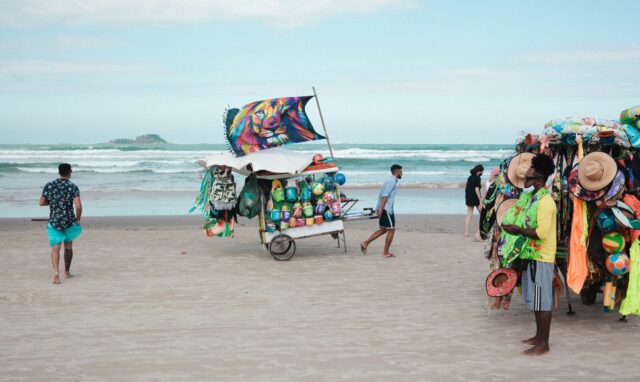With the intention that the commercial and tourist activity of the beaches have greater legal certainty, a proposal raises the possibility that these local businesses can use the terrestrial maritime zone. This is a project that seeks to ensure that Article 1 of the Law on Outdoor Commerce includes said space, both in a public area and in a restricted area.
And it is that according to the Law on the terrestrial maritime zone, this constitutes part of the national heritage, for which the Costa Rican Institute of Tourism (ICT) and the municipalities of the coastal zones must ensure its use in literal tourist areas. The maritime-terrestrial zone is the 200-meter-wide strip along the Atlantic and Pacific coasts, which is made up of the public and restricted zones. The public one is 50 meters wide from the ordinary high tide and the areas that are uncovered during low tide, while the restricted one is the remaining 150 meters.
However, there is concern about the demolition of buildings located in the maritime zone, carried out by some coastal municipalities, according to Daniel Vargas, deputy for Social Democratic Progress. “The initiative comes from meetings that we had with neighbors and merchants from the coastal areas, who have been contacting my office, in order to be able to make use of the maritime-terrestrial zone, since currently the businesses that are facing the sea they do not enjoy the legal stability to operate in the public area”, said Vargas.
The Free Trade Law empowers local governments to authorize business owners for the temporary development of commercial activity in public spaces, through the use of non-permanent infrastructure and furniture; as long as the right to free transit is respected.
For this reason, it is necessary to clarify that the provisions of article 1 of this legislation are included within the terrestrial maritime zone, because the national beaches are tourist spaces where economic activities are developed for these communities, according to Vargas.
“Actually, it is a legislative power to include in the Outdoor Commerce Law the possibility that those patented in front of the sea can use part of the public area to locate furniture, chairs, tables, awnings, to provide their services, such as it happens in parks and other public areas of the country”, added the legislator.

Likewise, he recalled that there is a provision in the law for the municipalities to prepare a regulation for these purposes, to ensure the transit of people and avoid damage to the beaches. “It is clear that mangroves and other marine ecosystems, which are protected areas, are excluded”, Vargas assured.
Support for this proposal is part of its commitment to economic reactivation in coastal communities, according to the ruling deputy. In addition, it is part of the government’s line of finding a balance between protecting the environment and promoting socioeconomic development in the different rural communities of the country.

For those who have experienced shifts in consciousness and know that more peace, joy, and love awaits in a better living environment. A bold shared vision. A living community and hub for innovation. A sustainable ecosystem for living and working. A model for the new future.
